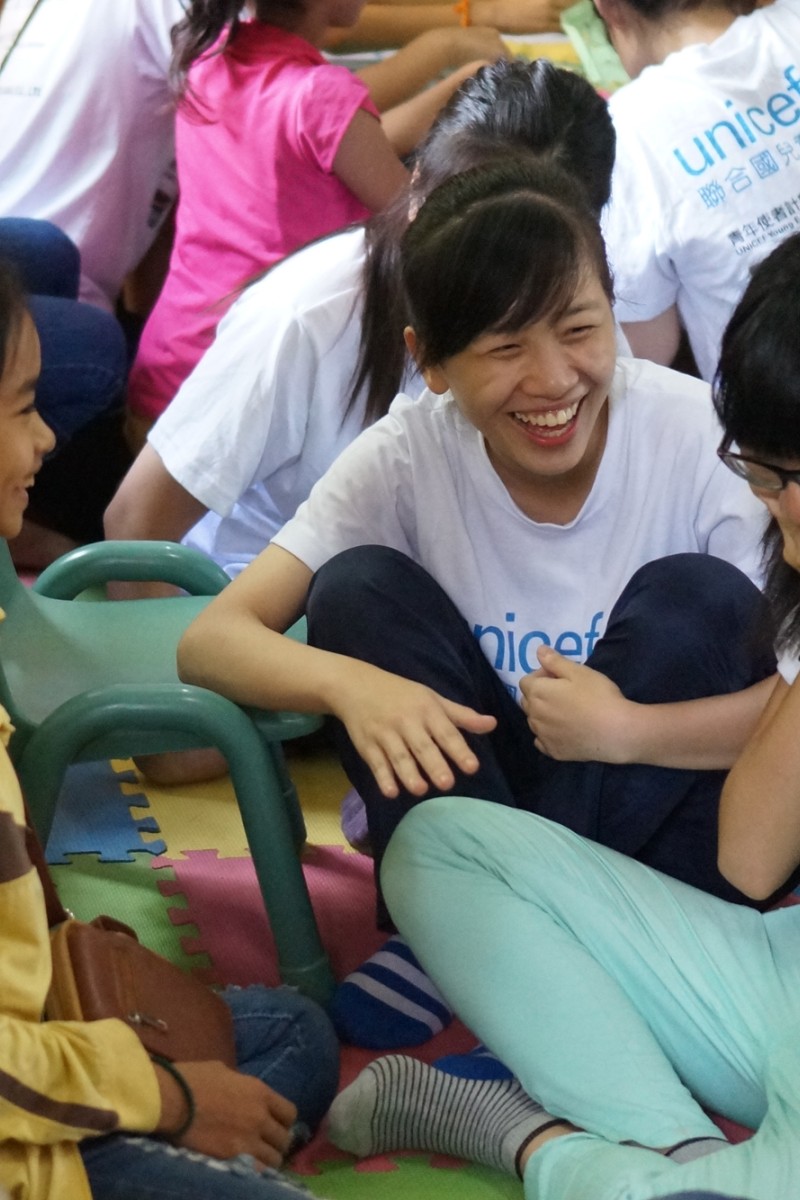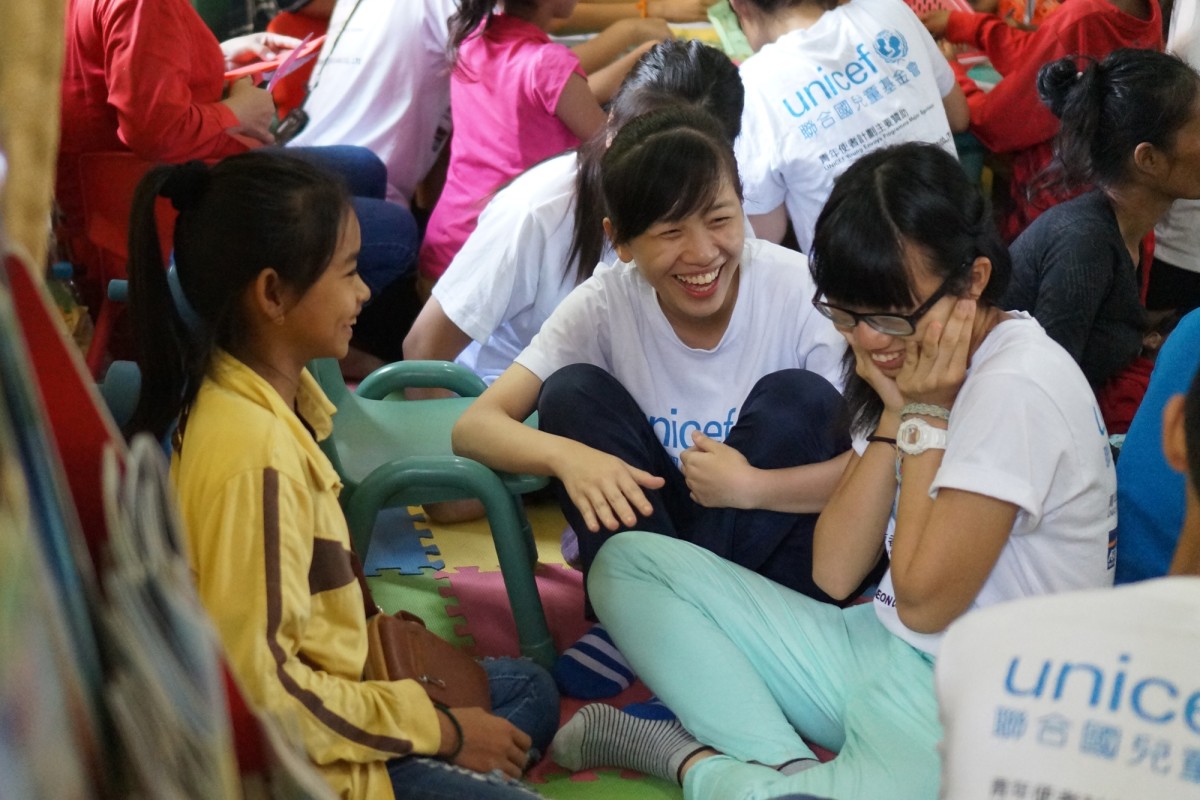
Students from Hong Kong went to Cambodia to speak to HIV patients, and the trip made them question the ethics of their journey, and their own opinions
 Laughter is a universal language that bridges the divide between cultures.
Laughter is a universal language that bridges the divide between cultures.There was a sense of unease in the air as a group of Hong Kong Unicef Young Envoys towered over two children and their mothers who sat on the playroom floor of a cramped hospital in Cambodia's Kampong Cham province.
"Are you discriminated against because you have HIV?" one of the Young Envoys asked 12-year-old Bopha*.
A grim silence. Bopha's mother finally answered. "The teachers don't like her and ask other children not to play with her," she said.
The Young Envoys are secondary school students on a visit to Cambodia to learn about Unicef's work tackling HIV/Aids in the country. HIV (human immunodeficiency virus) is a serious infection that affects the immune system. If HIV isn't treated, it can cause Aids. Once a person develops Aids, they can't fight off infections, which can lead to death.
During the five-day trip, the Young Envoys went to hospitals in different provinces and spoke with local doctors and patients about the challenges they faced. Their goal was to use their findings to raise awareness of HIV/Aids in Hong Kong.
But the students were soon wondering whether it was right to intrude on patients' privacy by asking such direct questions.
"There were like 20 of us around four of them. I saw that they weren't happy, and they didn't smile once in the half hour we were there," says Matthew Wong Chun-fai, a Form Five student from Maryknoll College, Kwun Tong. "Was it necessary to make them so uncomfortable just to satisfy our curiosity?"
But Silvy Chan Sze-wai, a Form Six student at Marymount Secondary School, thinks chatting to the patients gives them an outlet. "We all need someone to speak to. It's good to feel understood," she says.
Sedtha Chin, Unicef Cambodia's HIV/Aids specialist, says it can be difficult for locals because they don't often speak to foreigners. "But they understand why we need to speak to them. They know that we need the information to assess their situation and help them," she says.
In the more rural Stung Treng Province, a rubber plantation worker broke down in tears when his 13-year-old daughter Theavy said her wish was to go to school. Kong, his wife, and their younger 9-year-old daughter Sopheap are all HIV positive. The family struggles to make ends meet because the sick parents are sometimes too weak to work so Theavy has to help on the field, leaving Sopheap to care for her 4-year-old brother. The adults earn US$5 a day on the farm, while Theavy makes US$4. On average, the family spends US$8 a day on rice, fish and eggs.
“We live day to day. We drink rainwater and use the forest as our toilet. We used to live in a plastic tent but last year the farm owner let us stay in a cottage,” says Kong. “If we stop working, we won’t have anywhere to stay.”
Eighteen per cent of Cambodians live under the poverty line. Unicef gives transport subsidies to poor families so that they can get to hospital, and provides free HIV treatment, but there are currently no subsidies to help with food.
Poverty is a problem when tackling HIV because antiretroviral (ARV) drugs make patients weaker if they don't have enough food.
ARV drugs stop the virus from reproducing and can help people fight off HIV for decades. Patients are able to lead relatively healthy lives and the chances of the virus spreading are also greatly reduced.
Of the more than 75,000 adults and 6,000 children in Cambodia living with HIV, 85 per cent are receiving treatment. Chin says besides the free medicine, support services such as group sharing sessions and a friendly hospital environment are crucial when it comes to encouraging sufferers to come for treatment.
Elaine Cheng Hau-yau, a Form Six student at Holy Trinity College, was surprised to learn that many of the patients she spoke to did not face discrimination.
"One lady told me her neighbours sympathised with her condition and brought her food because they had relatives who died from the virus. The people here are more open when it comes to speaking about HIV than they are in Hong Kong," she says.
As the students laugh, play and chat with the children at the hospital, it's difficult to tell which ones are HIV patients.
Elaine thinks people shouldn't be so quick to judge. "I learned to be open to new perspectives," she says. "At first, I couldn't understand why the government would spend so much money building temples instead of helping people in need. But religion is important to people here in a way that I don't understand, and I shouldn't be so quick to criticise."
*The name of the HIV patient in the article has been changed
Want to take part?
Unicef HK is now accepting applications for Young Envoys 2016. Those aged between 12 and 18, and full-time students, are eligible.
Application deadline: November 2
For more information, visit: Unicef's website.